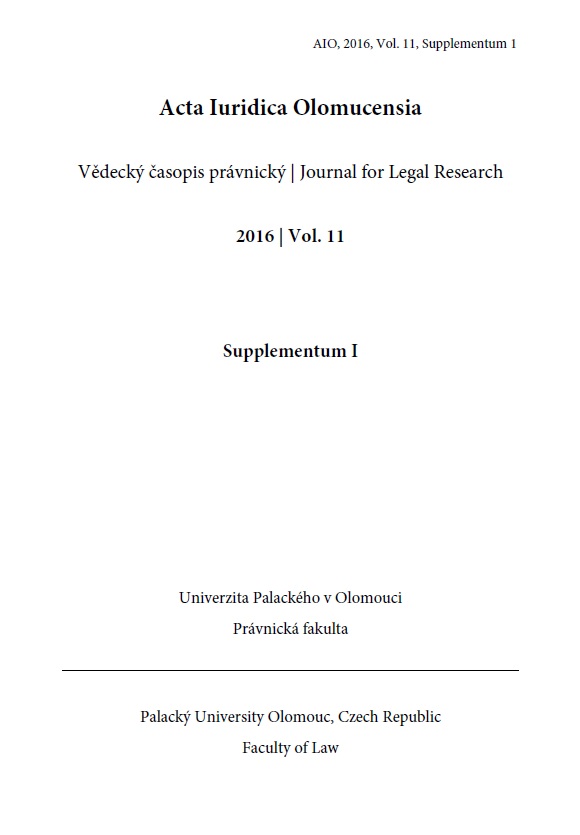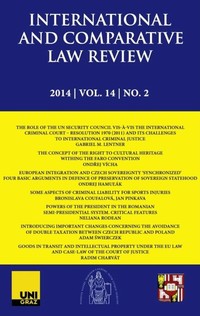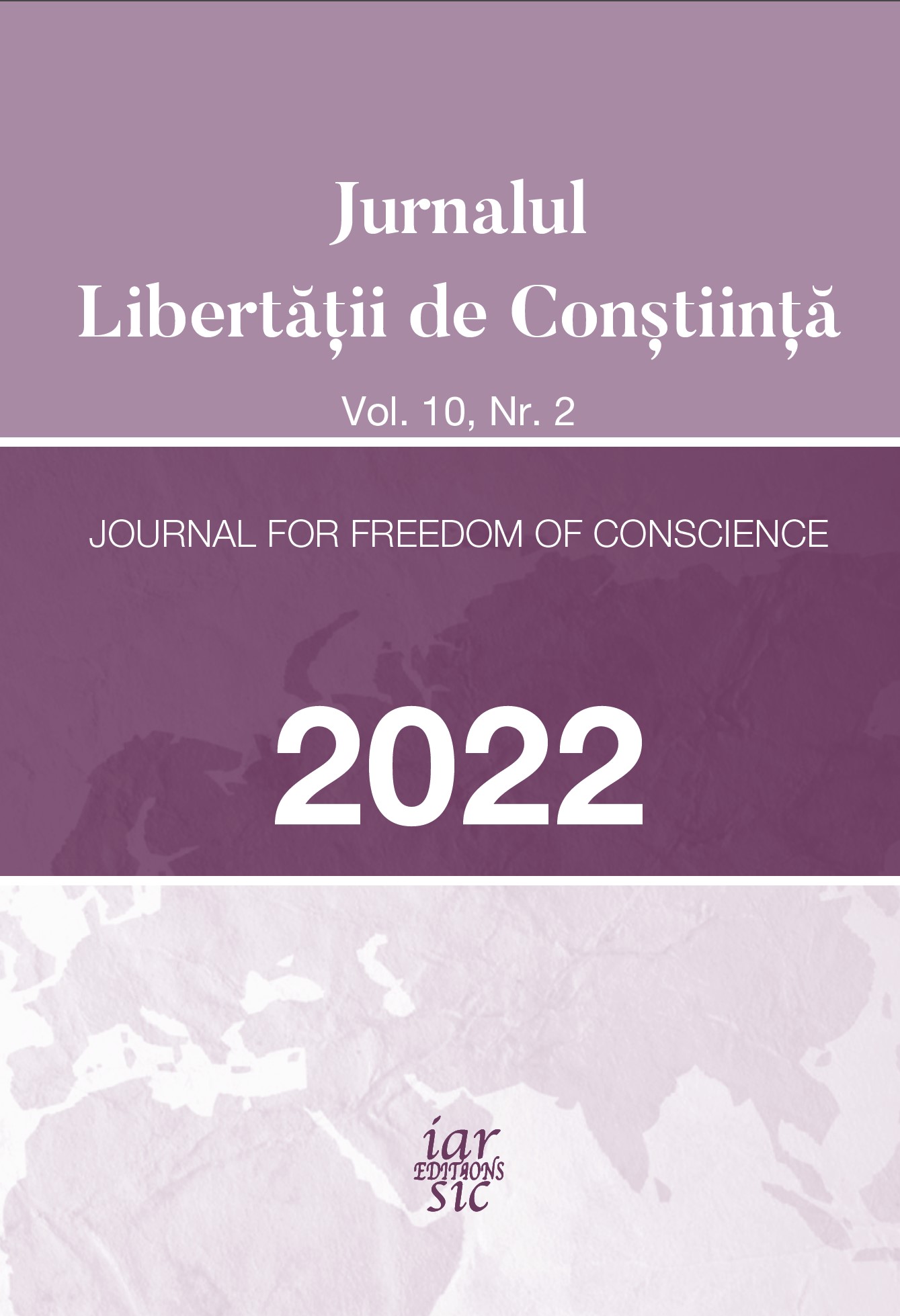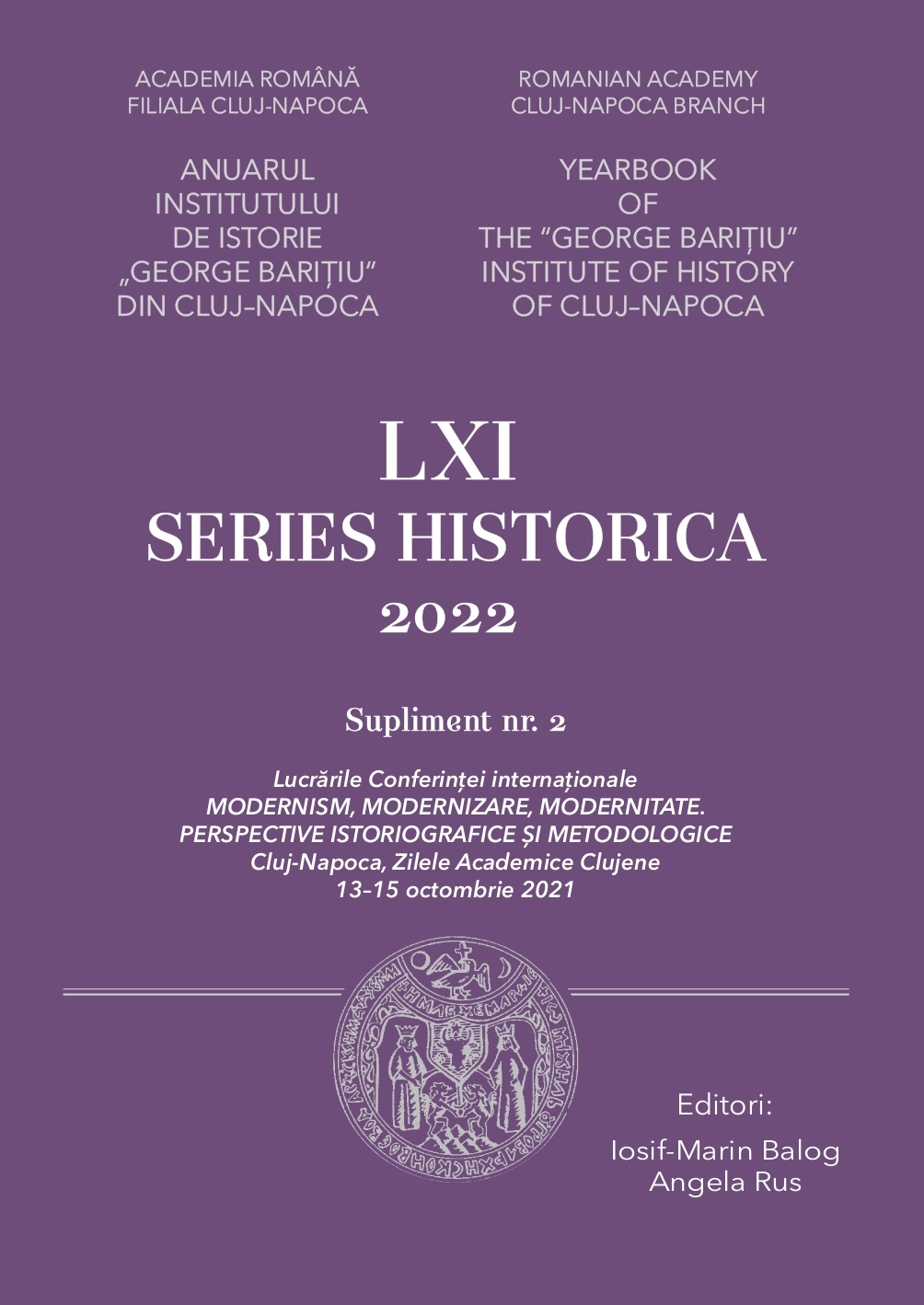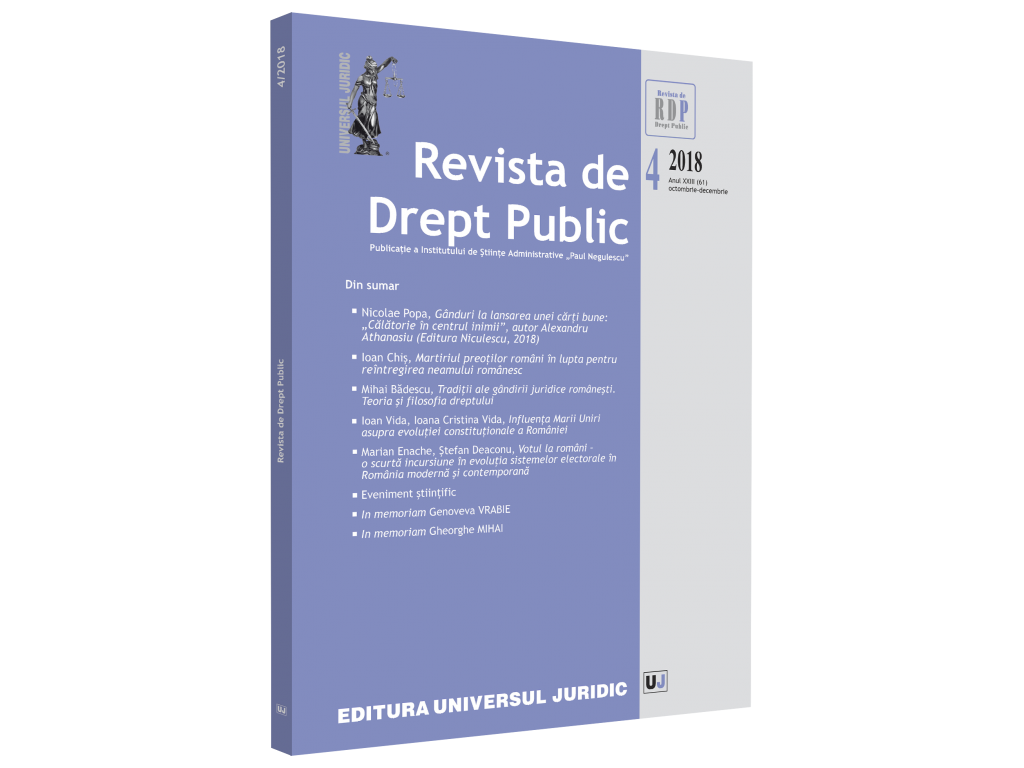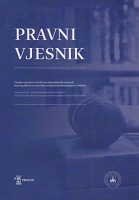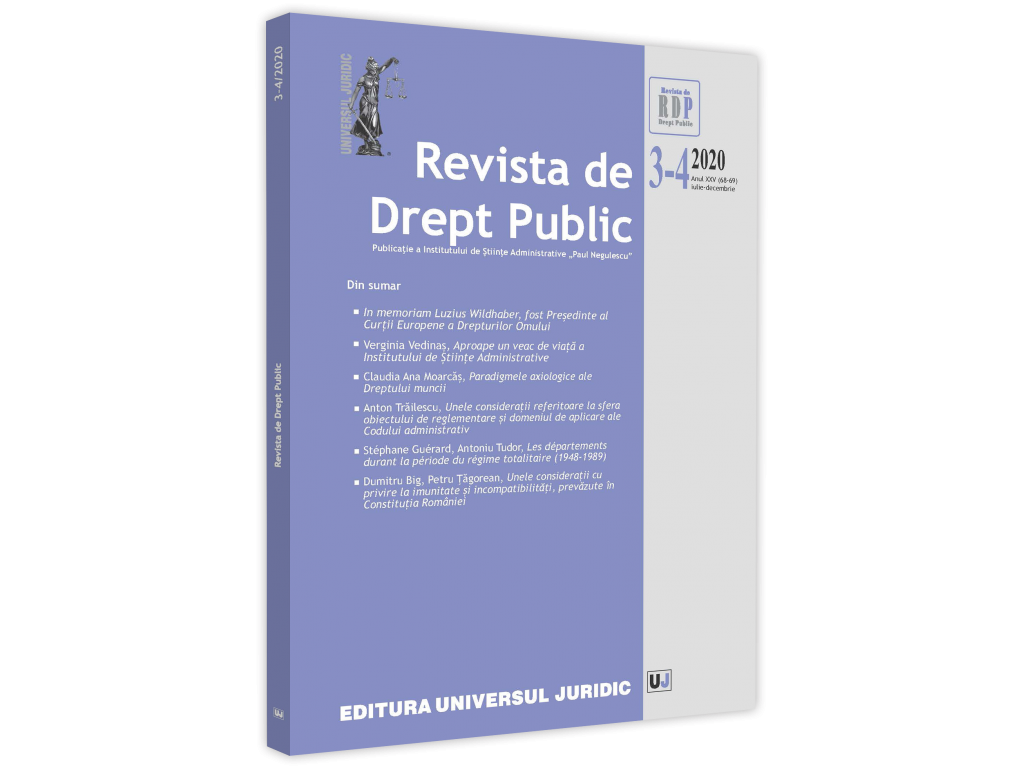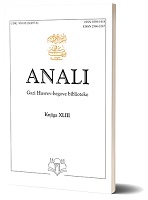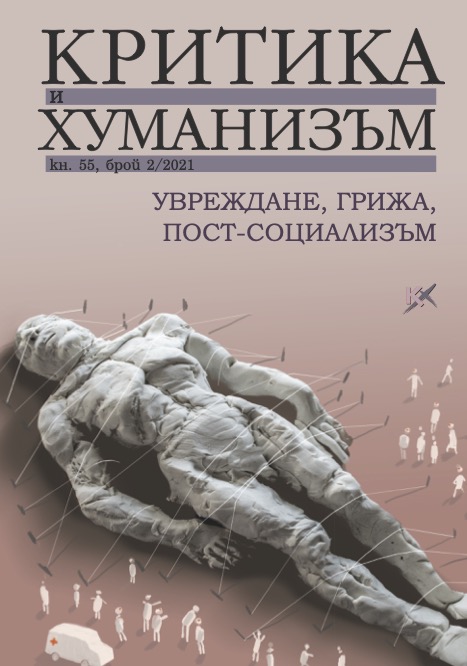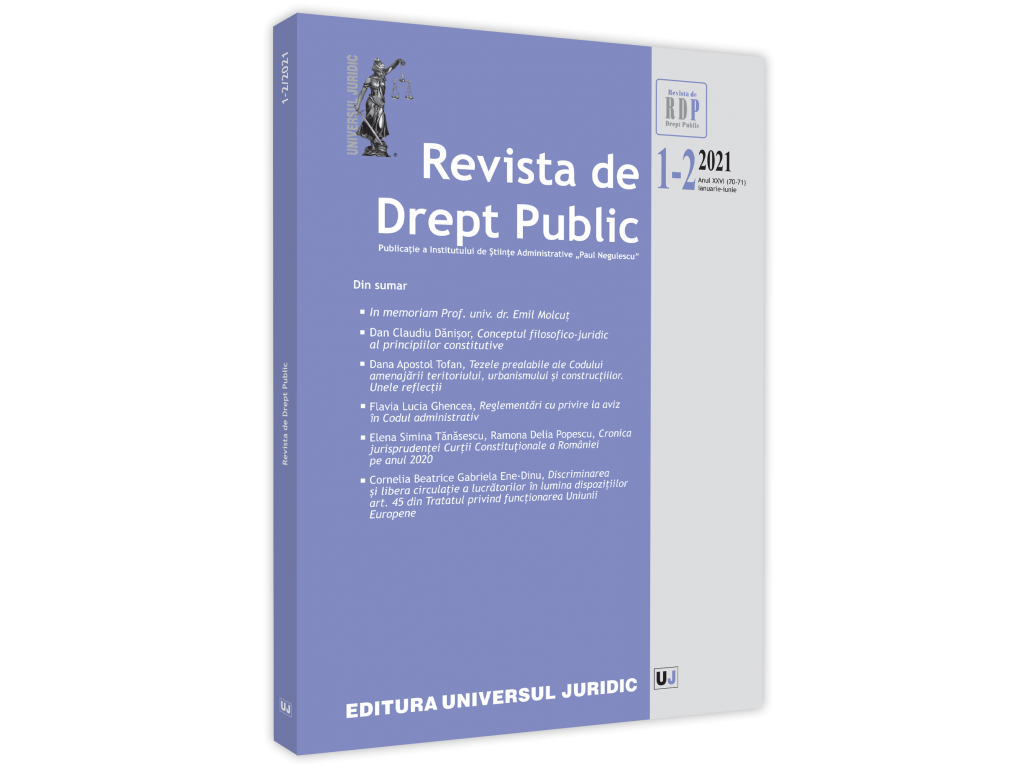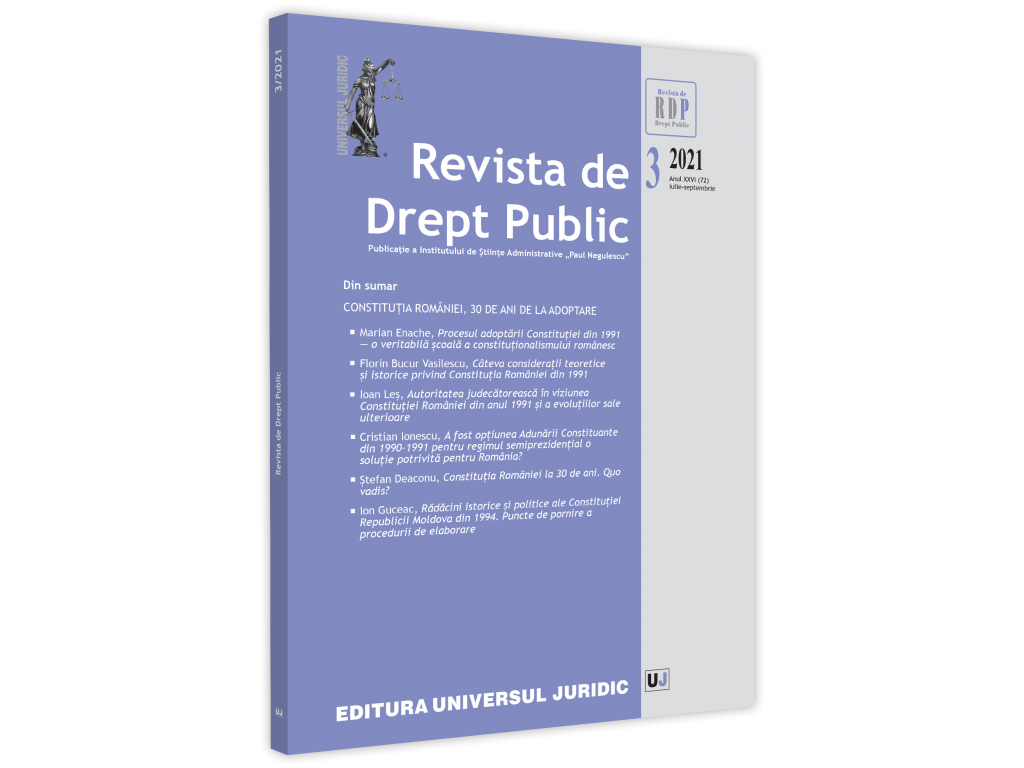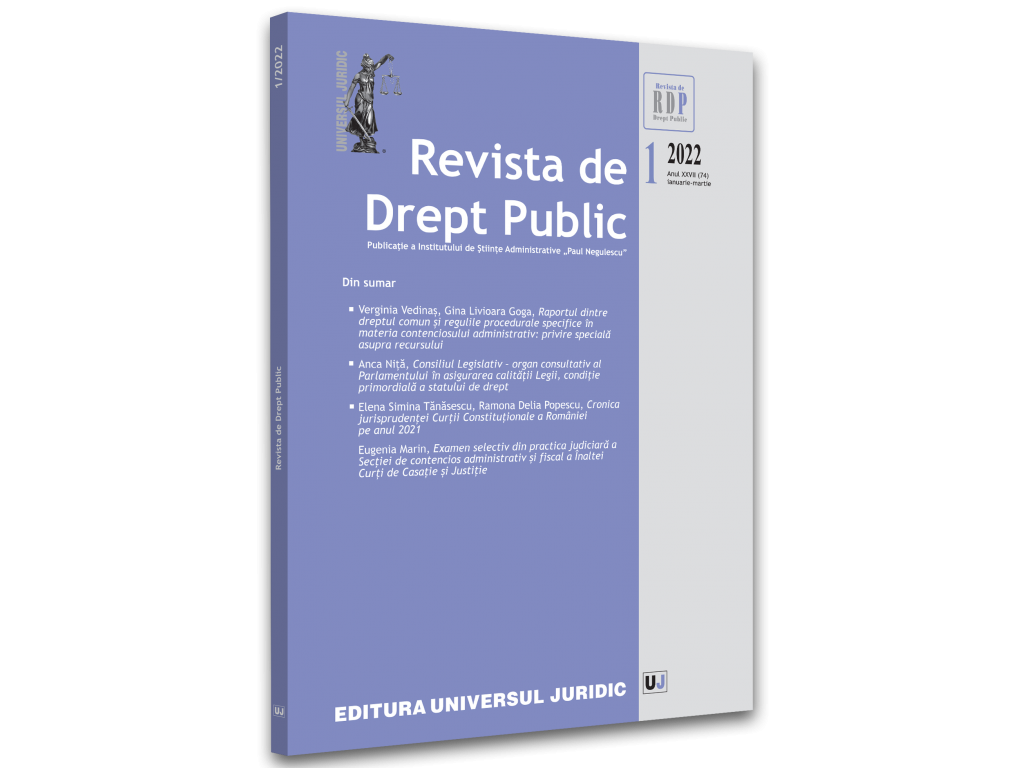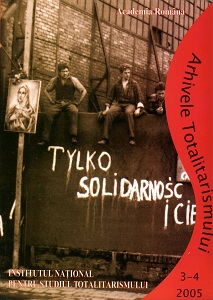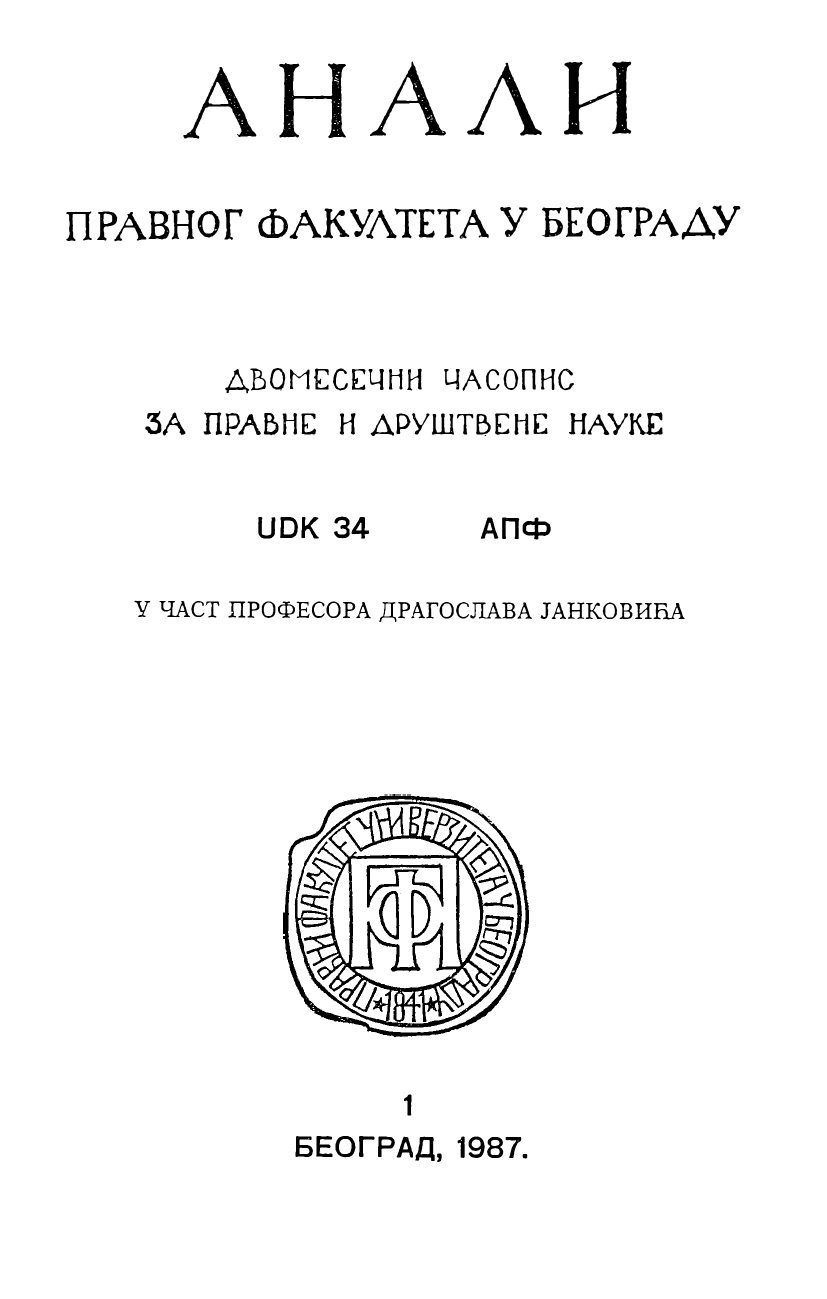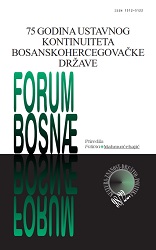Author(s): Mihai Bădescu / Language(s): Romanian
Issue: 04/2018
The study carried out is intended to inform the interested parties about a part of the contributions of some Romanian thinkers to the promotion and development of the theory and philosophy of law in our country, over the last hundred years. For the purposes of the above, we considered helpful to present these contributions by three temporal pillars: the inter-war period, the post-war period and the modern times. The inter-war period – times of freedom and creative exuberance in all social fields – brought an increased doctrine concern, among others, in relation to the theory and philosophy of law. Thinkers, such as Al. Oteteleşanu, Petre Andrei, Ioan Petrovici, Dumitru Drăghicescu, Andrei Rădulescu, Petre P. Negulescu, Radu Goruneanu, Gh. Băileanu, Traian Ionaşcu, Octavian Ionescu, Petre Pandrea, Alexandru Văllimărescu and, especially, Eugeniu Speranţia and Mircea Djuvara, by their writings, kept pace with the thinkers of those times, giving – to the consistent questions over the merits, role and purpose of law in the society – adequately substantiated and relevant answers. After the Second World War, under other – unfortunately – social and political and ideological conditions of the development and affirmation of the Romanian science, they found the necessary resources for keeping and developing specific concepts of the theory of law of Prof. Ioan Ceterchi and Prof. Gh. Boboş, together with many other authors, who have not been examined in this study (yet). In the modern times, mainly after 1989, valuable doctrinaire concepts emerged in Romania, originating from the examined field. Among the most illustrative authors, we may list: Nicolae Popa, Ion Craiovan, Sofia Popescu, Gheorghe Mihai, Ioan Humă, Gheorghe Dănişor. Their studies emphasized creative concepts in law, such as: the concept of the objectives of law, the complex referential concept over the philosophy of law, the cultural and legal itinerary as a structural factor in setting up and developing legal thinking, the visibility and pervasiveness of the concept of integrative legal knowledge, the set up of the concept of legal thinking, the working-out of a research program likely to promote the affective paradigm in law and so on. To conclude, it may be stated that the famous Romanian thinkers did their duty and continue to do their duty, keeping pace with other elite thinkers of the world, significantly contributing to the promote and develop the theory and philosophy of law.
More...
